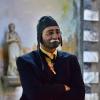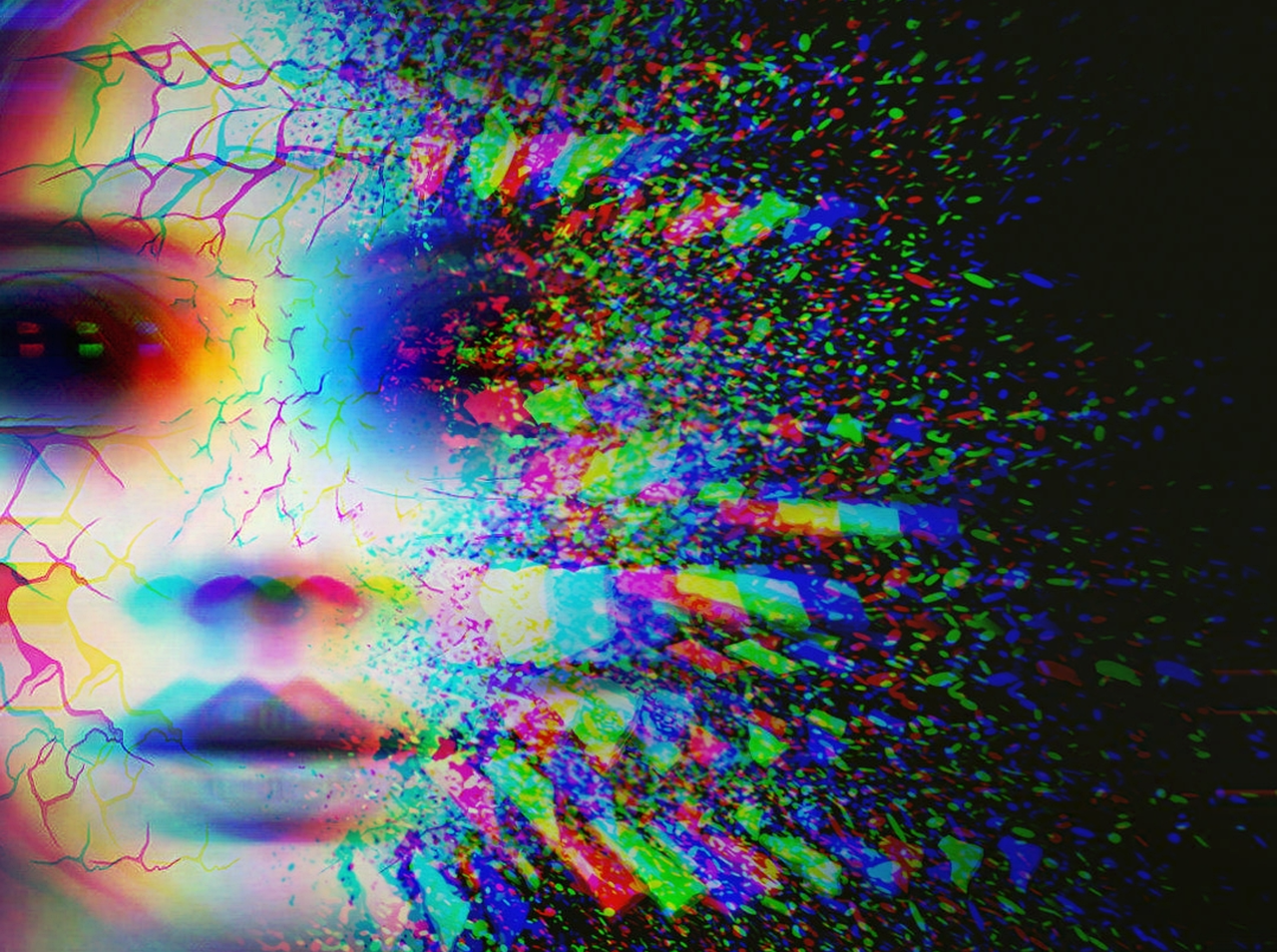Image by 13842406 from Pixabay
In Praise of Weirdness
The weird sisters, hand in hand,
Posters of the sea and land,
Thus do go about, about:
Thrice to thine and thrice to mine
And thrice again, to make up nine.
Peace! the charm’s wound up.
—Shakespeare, Macbeth, Act I, scene iii
Weird often saveth
The undoomed hero if doughty his valor!
—Beowulf, X.14–15, translated by J. Lesslie Hall
The word “weird” has deep roots in old English, originally as a noun for fate or magic, later evolving toward its present use as an adjective for the uncanny or peculiar. By the 1980s, it had fruited as the choicest middle-school insult against unstylish kids like me who spent their free time playing with figurines of wizards and listening to obscure science fiction radio shows. If the “normal” is the conventional, ordinary, and readily understood, the weird is what defies that.
Among the weirdest things about Earth is that certain complex bags of mostly water can pause to reflect on the most fundamental questions there are. We can philosophize to the limits of our comprehension and peer into the fog beyond those limits. We can contemplate the foundations of reality, and the basis of our understanding of those foundations, and the necessary conditions of the basis of our understanding of those foundations, and so on, trying always to peer behind the next curtain, even with no clear method and no great hope of a satisfying end to the inquiry. In this respect, we vastly outgeek bluebirds and kangaroos and are rightly a source of amazement to ourselves.
I will argue that careful inquiry into fundamental questions about consciousness and cosmology reveals not a set of readily comprehensible answers but instead a complex blossoming of bizarre possibilities. These possibilities compete with one another, or combine in non-obvious ways. Philosophical and cosmological inquiry teaches us that something radically contrary to common sense must be true about the fundamental structures of the mind and the world, while leaving us poorly equipped to determine where exactly the truth lies among the various weird possibilities.
We needn’t feel disappointed by this outcome. The world is richer and more interesting for escaping our understanding. How boring it would be if everything made sense!
1. My Weird Thesis
Consider three huge questions: What is the fundamental structure of the cosmos? How does human consciousness fit into it? What should we value? What I will argue in this book -- with emphasis on the first two questions but also sometimes touching on the third -- is (1) the answers to these questions are currently beyond our capacity to know, and (2) we do nonetheless know at least this: Whatever the truth is, it’s weird. Careful reflection will reveal that every viable theory on these grand topics is both bizarre and dubious. I will call this the Universal Bizarreness thesis and the Universal Dubiety thesis. Something that seems almost too preposterous to believe must be true, but we lack the means to resolve which of the various preposterous-seeming options is in fact correct. If you’ve ever wondered why every wide-ranging, foundations-minded philosopher in the history of Earth has held bizarre metaphysical or cosmological views (I challenge you to find an exception!) -- with each philosopher holding, seemingly, a different set of bizarre views -- offers an explanation.
I will argue that every approach to cosmology and consciousness has implications that run strikingly contrary to mainstream “common sense” and that, partly in consequence, we ought to hold such theories only tentatively. Sometimes we can be justified in simply abandoning what we previously thought of as common sense, when we have firm scientific grounds for thinking otherwise, Concerning such matters, nothing is firm -- neither common sense, nor science, nor any of our other epistemic tools. The nature and value of scientific inquiry itself rely on disputable assumptions about the fundamental structure of the mind and the world, and whether the external world exists.
On a philosopher’s time scale -- where a few decades ago is “recent” and a few decades from now is “soon” -- we live in a time of change, with cosmological theories and theories of consciousness rising and receding in popularity based mainly on broad promise and what captures researchers’ imaginations. We ought not trust that the current range of mainstream theories will closely resemble the range in a hundred years, much less the actual truth.
2. Varieties of Cosmological Weirdness
To establish that the world is cosmologically weird, maybe all that is needed is relativity theory and quantum mechanics.
According to relativity theory, if your twin accelerates away from you at very high speed, then returns, much less time will have passed for the traveler than for you who stayed here on Earth -- the so-called Twin Paradox. According to the most straightforward interpretation of quantum mechanics, if you observe what we ordinarily consider to be a chance event, there’s also an equally real, equally existing version of you in another “world” who shares your past but for whom the event turned out differently. (Or maybe your act of observation caused the event to turn out one way rather than the other, or maybe some other bizarre thing is true, depending on the correct interpretation of quantum mechanics, but it’s widely accepted that there are no non-bizarre interpretations.) So if you observe the chance decay of a uranium atom, for example, there’s another world branching of from this one, containing a counterpart of you who observes the atom not to have decayed. If we accept that view, then the cosmos contains a myriad of different, equally real worlds, each with different versions of you and your friends and everything you know, all splitting off from a common past.
I won’t dwell on those particular cosmological peculiarities, since they are familiar to academic readers and well handled elsewhere. However, some equally fundamental cosmological issues are typically addressed by philosophers rather than scientific cosmologists.
One is the possibility that the cosmos is nowhere near as large as we ordinarily assume -- perhaps just you and your immediate environment or perhaps even just your own mind and nothing else. Although these possibilities might appear unlikely, they are worth considering seriously, to assess how confident we ought to be in their falsity, and on what grounds. I will argue that it’s reasonable not to entirely dismiss such skeptical possibilities. Alternatively, and more in line with mainstream physical theory, the cosmos might be infinite, which brings its own train of bizarre consequences.
Another possibility is that we live inside a simulated reality or a pocket universe, embedded in a much larger structure about which we know virtually nothing. Yet another possibility is that our experience of three-dimensional spatiality is a product of our own minds that doesn’t reflect the underlying structure of reality or that our sensory experience maps only loosely onto the underlying structure of reality.
Still another set of questions concerns the relationship of mind to cosmos. Is conscious experience abundant in the universe, or does it require the delicate coordination of rare events? Is consciousness purely a matter of having the right physical structure, or might it require something non-physical? Under what conditions might a group of organisms give rise to group-level consciousness? What would it take to build a conscious machine, if that is possible at all -- and what should we do if we don’t know whether we have succeeded?
In each of our heads there are about as many neurons as stars in our galaxy, and each neuron is arguably more structurally complex than any star system that does not contain life. There is as much complexity and mystery inside as out.
The repeated theme: In the most fundamental matters of consciousness and cosmology, neither common sense, nor early twenty-first-century empirical science, nor armchair philosophical theorizing is entirely trustworthy. The rational response is to distribute our credence across a wide range of bizarre options.
3. Philosophy That Closes versus Philosophy That Opens
You are reading a philosophy book -- voluntarily, let’s suppose. Why? Some people read philosophy because they believe it reveals profound, fundamental truths about the way the world really is and the one right manner to live. Others like the beauty of grand philosophical systems. Still others like the clever back-and-forth of philosophical dispute. What I like most is none of these. I love philosophy best when it opens my mind -- when it reveals ways the world could be, possible approaches to life, lenses through which I might see and value things around me, which I might not other wise have considered.
Philosophy can aim to open or to close. Suppose you enter Philosophical Topic X imagining three viable, mutually exclusive possibilities, A, B, and C. The philosophy of closing aims to reduce the three to one. It aims to convince you that possibility A is correct and the others wrong. If it succeeds, you know the truth about Topic X: A is the answer! In contrast, the philosophy of opening aims to add new possibilities to the mix -- possibilities that you hadn’t considered before or had considered but too quickly dismissed. Instead of reducing three to one, three grows to maybe five, with new possibilities D and E. We can learn by addition as well as subtraction. We can learn that the range of viable possibilities is broader than we had assumed.
For me, the greatest philosophical thrill is realizing that something I’d long taken for granted might not be true, that some “obvious” apparent truth is in fact doubtable -- not just abstractly and hypothetically doubtable, but really, seriously, in-my-gut doubtable. The ground shifts beneath me. Where I’d thought there would be floor, there is instead open space I hadn’t previously seen. My mind spins in new, unfamiliar directions. I wonder, and the world itself seems to glow with a new wondrousness. The cosmos expands, bigger with possibility, more complex, more unfathomable. I feel small and confused, but in a good way.
Let’s test the boundaries of the best current work in science and philosophy. Let’s launch ourselves at questions monstrously large and formidable. Let’s contemplate these questions carefully, with serious scholarly rigor, pushing against the edge of human knowledge. That is an intrinsically worthwhile activity, worth some of our time in a society generous enough to permit us such time, even if the answers elude us.
My middle-school self who used dice and thrift-shop costumes to imagine astronauts and wizards is now a middle-aged philosopher who uses twenty-first-century science and philosophy to imagine the shape of the cosmos and the magic of consciousness. Join me! If doughty our valor, mayhap the weird saveth us.


